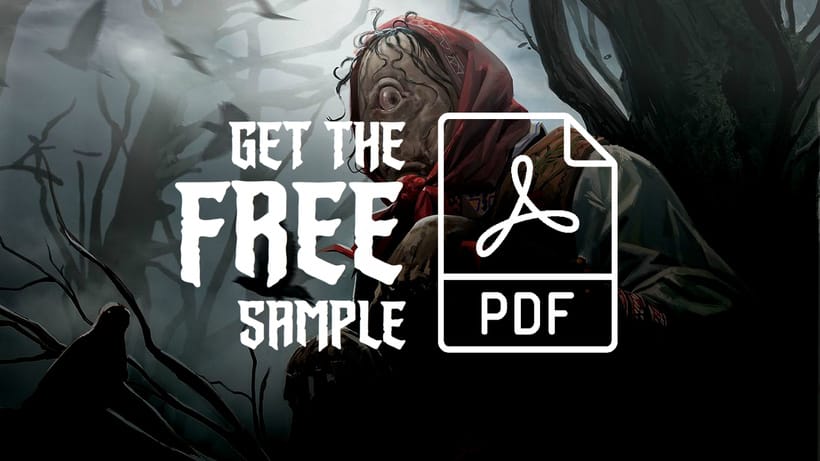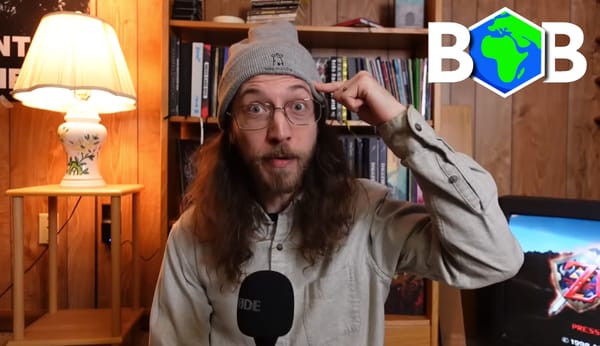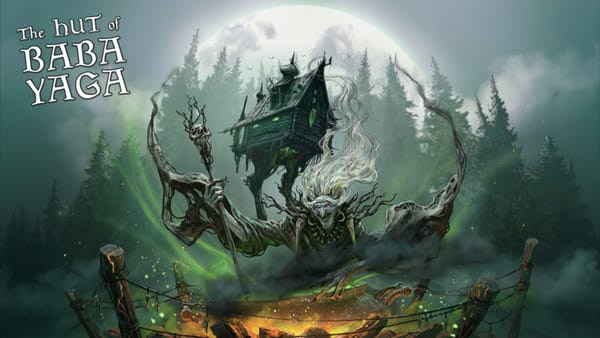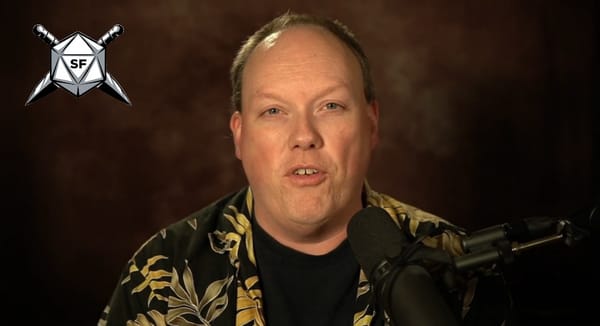No AI, No Gimmicks, Just Games: Inside JVC Parry’s Creative Ethos
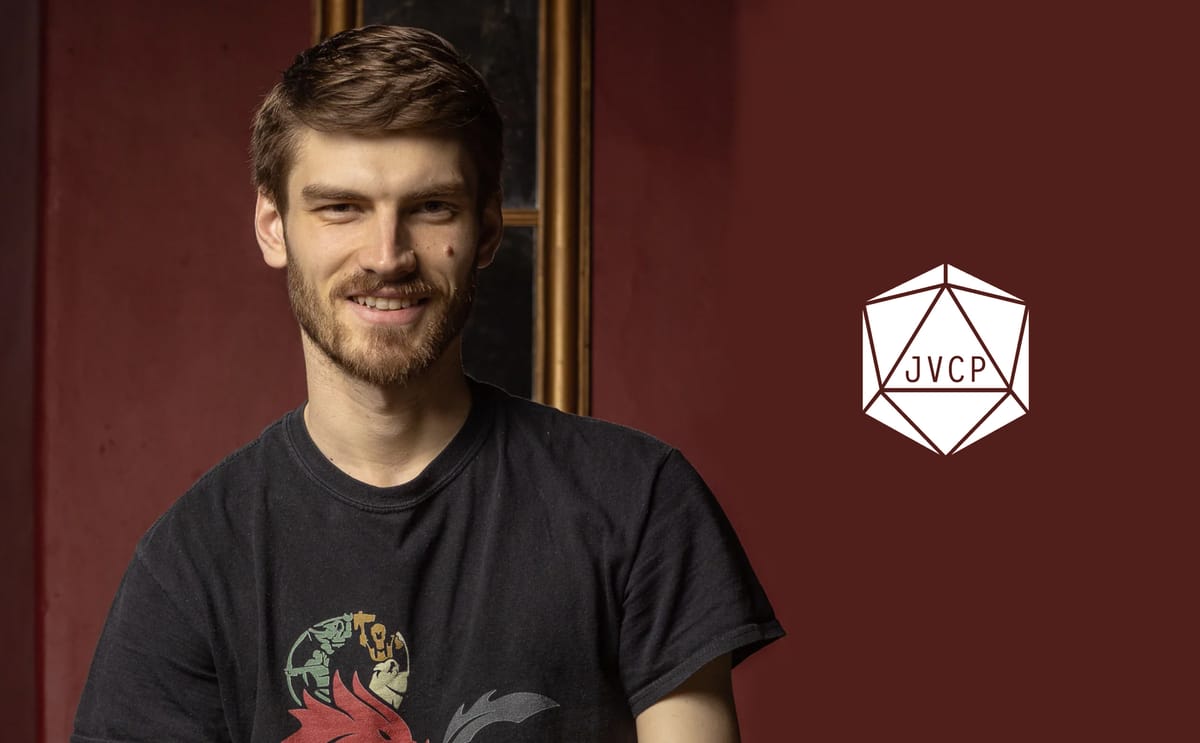
In an era where flashy graphics, viral marketing, and AI-generated shortcuts dominate so many Kickstarter success stories, it's refreshing—if not downright essential—to hear from a creator who forged their path through passion, integrity, and a commitment to authenticity.
This conversation with JVC Parry is not a blueprint for maximizing profit or hacking the algorithm. It’s a reflection on creating because you care, publishing because you believe in the work, and letting the art—not the hype—speak for itself.
From last-minute ZineQuest launches to costly marketing misfires, from pricing based on gut instinct to steadfast opposition to generative AI, Parry’s journey as an indie TTRPG creator is anything but conventional. But that's exactly what makes it so valuable.
Whether you're a first-time designer or a long-time freelancer, you'll find real talk here—about the joy of building worlds, the pain of promoting them, and the quiet grind that turns a hobby into a livelihood.
Welcome to a rare, unfiltered look behind the curtain.
You’ve launched several successful Kickstarter campaigns. What’s your first step when turning an idea into a crowdfunded project?
For me the success of the Kickstarter campaigns has never been paramount. At the time I was running these campaigns, I was lucky enough to have a reasonable passive income provided by royalties from past projects and a decent freelance income.
Rather than focussing on what makes a campaign successful, I instead tried to create things that excited me, were authentic to my own voice, and merged theme and design. For my indie games, this meant using innovative mechanics that tied closely with the theme, such as using Scrabble tiles in Through the Looking-Glass.
For my modules for existing systems, that meant writing adventures that I was excited to design, that I felt were at least somewhat unique in either their theme, or how they presented challenges to the players.
How far in advance do you start planning a campaign before it goes live?
It varied from project to project. My ZineQuest contributions were often very last minute because I would inevitably forget ZineQuest every year. For the D&D adventures specifically, I made sure to have a longer lead time, because the D&D space is more competitive, and I wanted to give those projects a greater chance of funding because their budgets were higher. That said, even when they failed, I always published them anyway!
What’s one thing you wish you had known before launching your first Kickstarter?
I'm not one of these creators who was obsessed with making the most money from Kickstarter, or somehow 'optimising' their performance on the platform. The biggest 'error' I ever made was paying Tabletop Gaming magazine £1,000 for a YouTube review of a product that then hardly got any views, and (I doubt) contributed to the success of the campaign.
I did it because I love the magazine, but it doesn't have a strong following in the TTRPG scene (as it mostly covers board games, with a splash of TTRPG, miniatures, TCG/CCGs, etc.). I suppose the moral of that story is to better research the target audience of the people you pay to advertise your projects.
Many indie creators struggle with pricing. How do you decide how to price your digital and print products?
Most people undervalue their work. They're excited to make any money from a project which might be their passion, and so they underprice their work either because they're not confident in it, or because they want to make as many sales as they can. My pricing was always informed by a few things:
- What I felt my work was worth, roughly calculated by time invested and my freelance rates.
- What I spent on the project (art, editing, advertising, etc.)
- What I felt was 'fair' for a customer, which is of course dictated by what other people charge.
- (For Print) How much it costs to physically produce the item.
I never came up with an exact formula to balance all of these factors, and instead relied on my gut most of the time.
I've also routinely increased the prices of my products year after year as my work became more popular and I valued my time more. I've not upped my prices since I stopped self-publishing though, so they're unlikely to increase further now.
Can you share how you transitioned from a hobbyist to a full-time TTRPG creator? What made it sustainable?
Initially I published a lot of DMsGuild which achieved two things: Firstly, it increased my passive income. Each new product meant more money, and also increased the sales of my old products, thus having an greater impact on my income than releasing in a vacuum.
Secondly, it got my name out there as a writer who could reliably create quality content. Decent sales figures and a recognisable name led to freelance opportunities, which only continued to grow when I worked hard at ensuring I was a reliable and quality writer. It's rarer than you think.
I hear about unprofessional freelancers from every publisher I work for. The TTRPG industry is not a professional one, so acting with some integrity goes a long way. It was sustainable in part thanks to having low living expenses (I lived in a small house with my then girlfriend, with no children, in a rural area), and continued hard work: reliability breeds reliability. If you're a reliable freelancer, you'll find reliable work.
How do you build hype before a campaign launches? Any go-to strategies or platforms?
I never really achieved any hype before my campaigns. I'm a terrible marketer, despise social media, and never had any qualms about saying so. I would routinely post on Twitter and Facebook to little avail, but also with minimal investment on my part.
I created some YouTube videos which got some views, but I think primarily from people already interested in my work, rather than new customers. I think the fact that I didn't enjoy marketing came across, and therefore didn't help to create new leads.
I barely use social media at all now, as I don't self-publish anymore and found it an intellectual drain, so I wouldn't even know where to start generating 'hype' nowadays.
What’s been the most effective way to grow your mailing list or follower base pre-launch?
For a while I did try to actively grow my mailing list by doing giveaways, providing free content for new subscribers, and also trying to produce a quality newsletter. As with my (other? does a newsletter count?) social media efforts, I never really enjoyed it, and (perhaps because of that) it never worked that well.
People who were already going to support my work found it a useful reminder, but beyond that it never took off. My newsletters got relatively good open rates (40–60%) but fairly low click rates (0–10%).
I'm not sure it ever grew above 500 subscribers, and I actively culled constantly because I didn't want to be sending emails to people who didn't care about my work.
What role does your personal brand (as JVC Parry) play in marketing your projects?
I can't imagine it has any role to play. I'm fairly anonymous online. Most of my sales are in the US and I'm from and based in the UK. I appeared on a few interviews and livestreams over the years, but none of them were particularly popular. I also rarely directly interacted with my customers.
I'm grateful to everyone who has ever bought a copy of one of my books, and I've had some lovely conversations with fans over the years on Discord and in-person, but I don't think people buy my books because of me, I think they buy them because they look good and are well reviewed by other customers.
How do you balance being a creator and a marketer—do you enjoy the business side, or is it a necessary evil?
For me, marketing was an unnecessary evil, and I invested only as much time as I could bear doing it. I found it boring to write about my own work when I knew I could be writing new stuff.
The broader business side is of course necessary though. You have to submit invoices, file your return, pay your taxes, get production quotes, make payments, etc. The business admin never bothered me. Marketing I found to be entirely superficial, deeply narcissistic, and ultimately boring.
Do you use paid advertising (Facebook, Reddit, etc.), or rely more on organic reach and community engagement?
I tried both, and neither worked particularly well. My paid adverts on Facebook always outperformed other platforms that I tried (namely Twitter and Reddit), but over the years I was self-publishing they became less and less impactful, and I eventually stopped doing them altogether.
My freelance clients were telling me that they were having the same problems at the same time, so I think it was platform- rather than content-related. I suppose I relied more, therefore, on organic reach (of which I had little) and community engagement (which I enjoyed more, but wasn't that frequent).
Which social media platform brings you the most engaged audience?
For a while it was Twitter, but with the appearance of the intolerable Musk I left the platform, as did many others. In my experience it had already been getting worse before he bought it anyway.
There was less interesting, thought-provoking content, and more people trying to sell whatever it was they were working on. When I first joined, I loved talking to other designers about new books, interesting ideas for mechanics and lore, etc. By the end I would scroll for minutes and see nothing that excited me.
The only platform I dedicate any time to now is Discord. I like talking to people there who have questions, criticisms, or praise about my work, or TTRPGs in general. I think the people in my Discord server are definitely engaged, but they're not an 'audience'. There's not much to see.
How do you decide what kind of content to post during a campaign—progress updates, lore drops, previews, etc.?Because all of my books were already finished by the time they launched on Kickstarter, I mostly shared progress of the final steps of production, such as getting final pieces of artwork and print proofs. If we broke stretch goals I'd always write an update about the new content, because I think people were keen to hear more about it. I'm not entirely sure what a lore drop is, so I doubt I ever did one.
Have you experimented with newer formats like TikTok or YouTube Shorts to market your projects?
No. I have no interest in short-form media. I personally find it disinteresting, and am therefore disinclined to create it. I also don't love being on camera. I created some longer YouTube videos and I found them painful to edit and watch back.
Do you use any automation or tools to manage your social media or newsletter outreach?
I routinely used Buffer to schedule posts, mostly out of laziness. I also have customers around the world, so it made sense to post in the middle of the night when I was asleep using scheduled posts so that I could interact with customers in the US or Australia, for example.
My newsletter was hosted(?) by Mailchimp, and then I moved to Shopify because Mailchimp started charging. I would use those platforms to cut out subscribers who didn't actually open my emails, but beyond that they were really just a database filled with email addresses for me.
How do you approach stretch goals and add-ons? Have you ever regretted offering too much?
I'm lucky never to have had that regret, though perhaps not lucky because I actively avoided over-offering. My stretch goals were typically small physical items (bookmarks, stickers, etc.) or small pieces of additional content, filling a few spreads at most. In my Kickstarter consultations, I am constantly warning people not to offer too much in stretch goals, because they're dangerous.
People don't anticipate the additional shipping costs incurred, for example, or they make assumptions about the number of people interested in an add-on, then release that printing 10 copies of something costs a painful amount per unit. The best add-ons, in my opinion, are things you already have in stock (i.e. your previous work).
The best stretch-goals are cheap and cheerful, or digital. I'm not excited when I see campaigns that offer 'deluxe' pledge tiers filled with off-the-shelf rubbish made in China. In fact I've always found it somewhat offensive, as it shows a lack of care for what an audience really wants, in favour of buying cheap and selling high.
What are your thoughts on running campaigns with a quick turnaround (e.g. zine-style campaigns) versus larger books?
Each has its place. I enjoyed the fluidity of ZineQuest and similar 'Quickstarters', but I'm fairly sure that you do miss out on some sales. I would advise people to choose a campaign duration based on their product.
If you only want to produce a handful of zines, then run a something quick, light, and fun. If you want to produce a hardback book and sell thousands of units, you're obviously going to need to invest more and part of that means keeping your campaign live for longer.
How important are previews (like free PDFs or playtest packets) in converting potential backers?
Incredibly. They're probably in the top five elements. Being able to see a glimpse of what you're getting allows you to vet its quality, and if you're a discerning purchaser, then you're going to be concerned about that.
Plus, it's incredibly easy to create a, for example, 2-page preview of a product you're working on and gain conversions from it. Other important elements take much more effort and investment. I think if you're not including a free preview, you're shooting yourself in the foot.
I also don't think a free preview which I have to provide an email address to view is really free, because ultimately I'm paying in my time unsubscribing from your newsletter if I don't like what I see, so make it truly free, and host it on a platform with open access.
Have you experimented with AI in your workflow—either for idea generation, editing, layout, or art?
Before I took the time to educate myself, I used AI tools to generate artwork and provide writing prompts. It lasted about a week before I saw the concerns of other creatives, did some reading, and realised what an awful thing AI 'tools' are for creative endeavours.
Using AI tools like ChatGPT, Midjourney, etc. is theft. You are stealing work from creatives who did not consent to having their work used in that manner. I cannot fully express how against these sort of AI 'tools' I am in a short answer. I find them abhorrent.
As if the moral implications of using AI in this way wasn't bad enough, you only need to do a few minutes of research to see the unjustifiable impact they're having on the environment. Finally, I still find that I (and others) can reliably pick out AI-generated content, and it's typically utter trash.
Do you think AI can help indie creators level the playing field with bigger publishers, or is it more of a risk?
No. I think it's a morally bankrupt approach to take. There are plenty of ways to become a successful publisher of TTRPG content that do not involve the use of AI. I came up before AI existed, and so did (tens of) thousands of other creators.
Many became successful before the internet. Great swathes before social media existed. Almost all before the advent of generative AI.
Of course it's a risk because people will inevitably notice, and a vocal minority will try to ruin your reputation for using it, but I'd urge you to put aside those concerns and think more deeply about the impact these tools have on the industry. Unless you're just in it for the money (in which case, you can kindly float off), you want to make TTRPG content because you are some way interested in the act of creation.
Using AI tools deprives other people just like you of paid work doing exactly the thing you want to be doing. Either take the time to get good yourself, or pay someone a fair wage to do it for you. Generative AI is theft.
What would your dream AI tool for TTRPG design look like?
A program I could run to annihilate all other AI tools, and then self-destruct.
Thanks!
This interview is presented in partnership with Strigovia.
Strigovia is a dark, Slavic-inspired tabletop RPG where what we call “magic” is not a gift, but a debt owed to the ancient Forest — a power that listens, remembers, and always collects. There are no carefree spells or heroic fireballs here, only whispered rituals, blood-bound bargains, and slow transformations waiting for those who ask for too much.
This is low-fantasy horror focused on survival, painful choices, and stories that linger long after the dice stop rolling.
